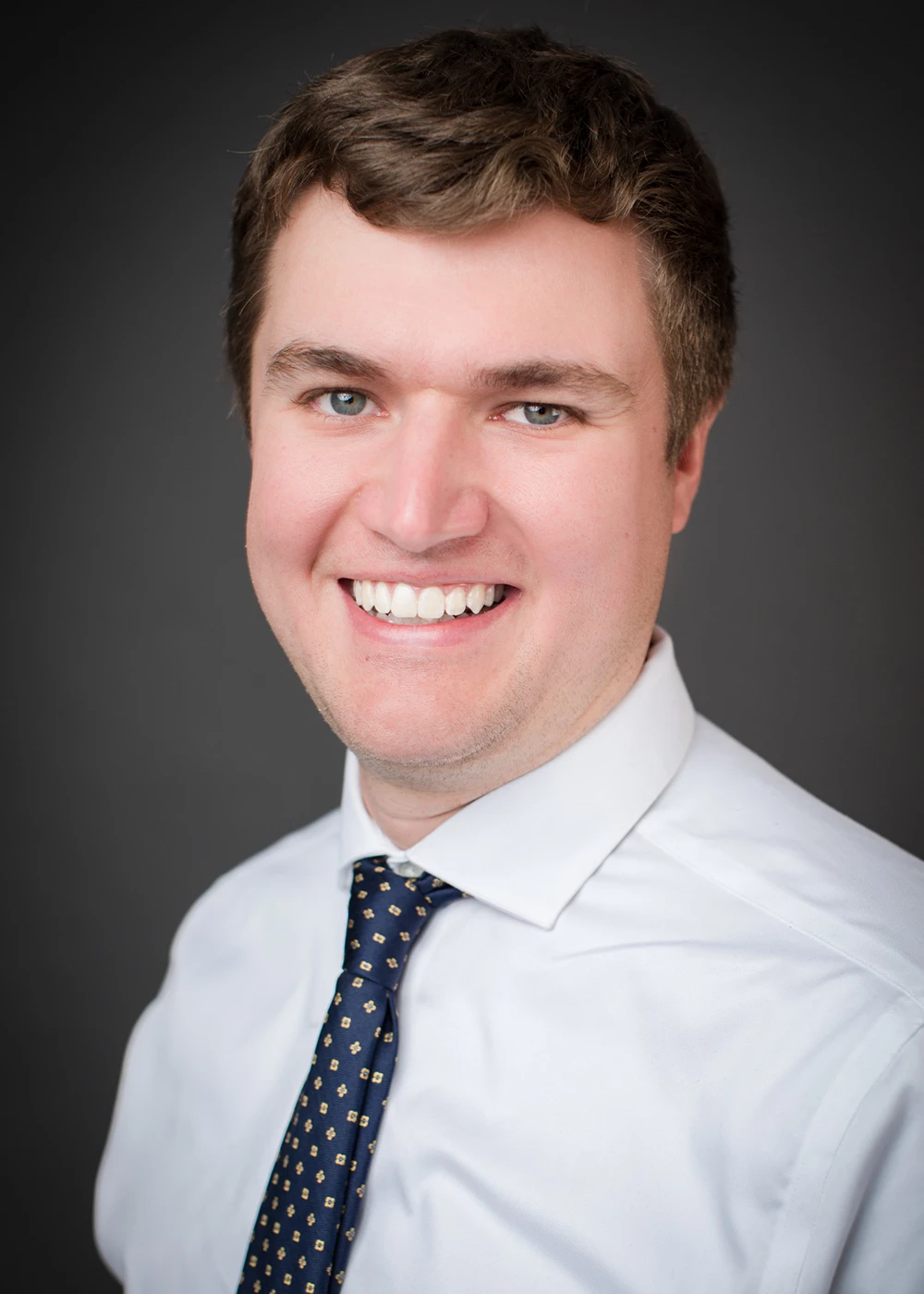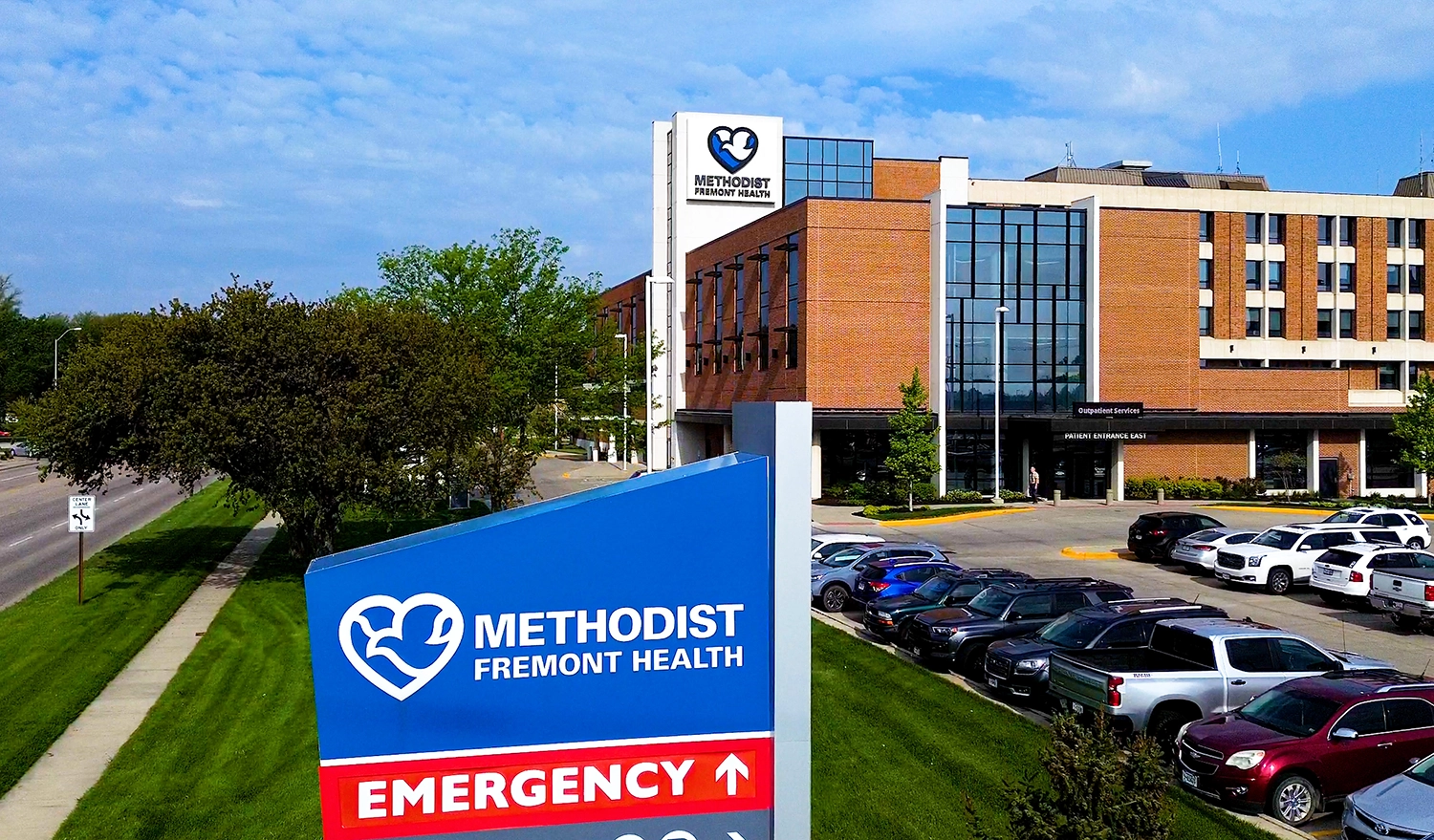





The Meaning of Care Magazine
Retired Nurse Receives ‘World-Class Care’ From Methodist Fremont Health
Published: Aug. 29, 2023During the early morning hours of Feb. 23, Dave Nissen woke up with severe abdominal pain.
“It was unremitting pain,” the 72-year-old volunteer emergency medical technician and retired nurse said.
Dave’s daughter rushed him to the Methodist Fremont Health Emergency Department (ED), just 7 1/2 miles away from his home in Arlington.

He was admitted to the hospital, received four major surgeries over five days to remove part of his intestines and reattach them, and spent 13 days in the hospital — including many days in the Critical Care Unit — before being discharged home with support of home health care services.
Dave received in-home assistance for about a month before making significant progress, which allowed him to resume living independently. He even attended an Arlington Volunteer Fire Department meeting just a couple of months after his hospital stay to offer his assistance.
“He has no business doing as good as he is. I’ll be honest,” said emergency medicine physician James Tiehen, MD, who saw Dave in the ED. “It’s one of those remarkable cases that you remember.”
Dave’s daughter, Liz Dunklau, APRN, a nurse practitioner at Methodist Fremont Health, believes that her father returned home because of the “impeccable” care he received.
“He survived because of the care that we have at our small hospital and because of the knowledge, teamwork and experience that they all had,” she said.
Dave added: “The truth is, I got world-class care in Fremont, Nebraska.”
Difficult Decisions
After arriving at the ED, Dave received multiple tests. Despite none of the data suggesting anything was seriously wrong, Dr. Tiehen made the decision to admit Dave to the hospital.
“A common conversation I have with people is that the tests look good now, but that doesn’t mean they will in two hours,” Dr. Tiehen said.
Adam Pentel, DO, a general surgeon with Methodist Physicians Clinic, engaged in one of many lengthy discussions with Dave and his family to propose a laparoscopic procedure to examine his intestines. After Dr. Pentel examined the area, Dave was diagnosed with intestinal ischemia in his small intestine. Part of his small intestine was dying because of a lack of blood supply, which required Dr. Pentel to surgically remove that part.
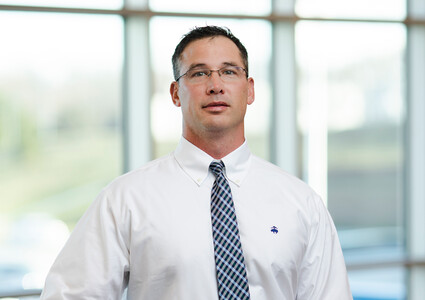
Dave seemed to improve for a brief time after the initial procedure, but he and his family knew additional surgery would be necessary.
Todd Eberle, DO, a hospitalist at Methodist Fremont Health, met Dave and his family after he was moved to the Critical Care Unit.
Drs. Eberle and Pentel were in constant communication to monitor his condition. Because Dave continued to get worse, Dr. Pentel headed back to the hospital during the middle of the night.
“He was one of the sicker people that we’ve taken care of and, in all honesty, he was pretty close to dying,” Dr. Eberle said.
During the few moments that he could speak, Dave communicated to Dr. Eberle that he wanted to keep fighting.
“He had enough to live for and a purpose,” Dr. Eberle said. “He wanted to risk everything for a chance at a normal life.”
Drs. Pentel and Eberle had a long discussion before conversing with Dave’s numerous family members who were present – many of whom work or have worked in the health care field – and gave them the hard truth that surviving a second surgery would be difficult. But after laying out the facts, they decided to act on Dave’s wishes.
“That’s what helped make our decision,” Dr. Eberle said. “We knew that’s what he would want.”
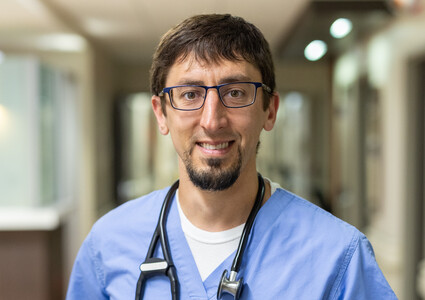
Nurses helped transport the frail patient to the operating room where Dr. Pentel removed another portion of Dave’s small intestine before returning him to the Critical Care Unit.
The doctors continued to communicate with Dave’s family before making challenging decisions to embark on a third and fourth surgery.
“I tell families that the more information they have, the better off they’re going to be to make decisions,” Dr. Pentel said.
The fourth and final surgery was followed by hope. Dr. Pentel was able to successfully reattach Dave’s intestinal tract.
Over the course of the next week, as Dave progressed toward discharge, numerous staff members made sure all of his needs were met, including his spiritual desires.
Scott Jensen, a chaplain at Methodist Fremont Health, made frequent stops in Dave’s room to pray with him and his family. During one particular moment, Jensen offered a prayer for flatulence – something that would indicate normal intestinal function.
“It was nice to have something to smile about,” Liz said.

Care From Every Direction
Although Dr. Pentel made the incisions and removed the dying parts of Dave’s intestines, the surgeon recognized the team effort that led to Dave’s survival.
“It definitely wasn’t just me,” Dr. Pentel said. “I was just a small part in the process.”
He added: “Having all those moving parts working together and doing it in a timely and efficient way made a big difference in his eventual good outcome.”
One of those timely decisions was to put Dave on total parenteral nutrition (TPN) – nutrients given through an IV while bypassing the gastrointestinal system – within the first 48 hours of his hospital stay. According to Katie Schreck, MS, RD, LMNT, a therapeutic dietitian at Methodist Fremont Health, TPN is a great way to meet calorie and protein needs, which is very important because Dave’s body was working so hard to heal itself.
Dave and his family received visits from respiratory therapists, cardiologists, an infectious disease specialist, his primary care provider and multiple nurses during his near two-week hospital stay.
“Whatever aspect of care I needed, they were thinking about it,” Dave said.
Sybil Steenblock, RN, who spent three consecutive 12-hour day shifts as Dave’s primary nurse in the Critical Care Unit, knows she was never alone when taking care of him. If she ever needed something, all she had to do was pop her head out of the room, and at least three or four different staff members would arrive to help her.
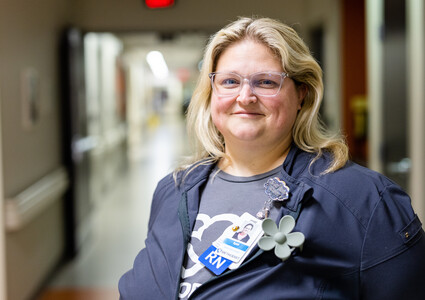
“There is a whole culture at Fremont where we don’t let anyone drown,” Steenblock said.
“Glad to Be Alive”
Just a few months removed from his health scare, Dave is slowly adjusting to his new normal.
He tries to spend as much time as he can with his grandchildren at the park and on the family farm. And he desires to continue volunteering with the fire department.
“Every day I wake up, I’m glad to be alive,” he said.
And he’s thankful for the opportunity to tell others about the care he received in Fremont.
“You don’t have to go to the ‘big city’ hospital. You can get good care right here, close by.”
Photos by Dan Johnson
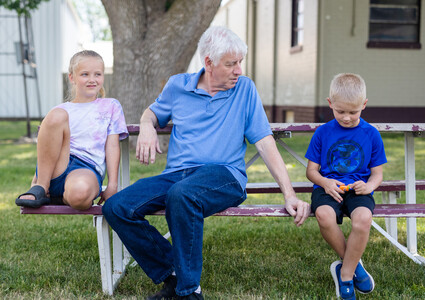
More Resources
- Read more from the summer 2023 issue of The Meaning of Care Magazine.
- Learn more about services provided at Methodist Fremont Health.

